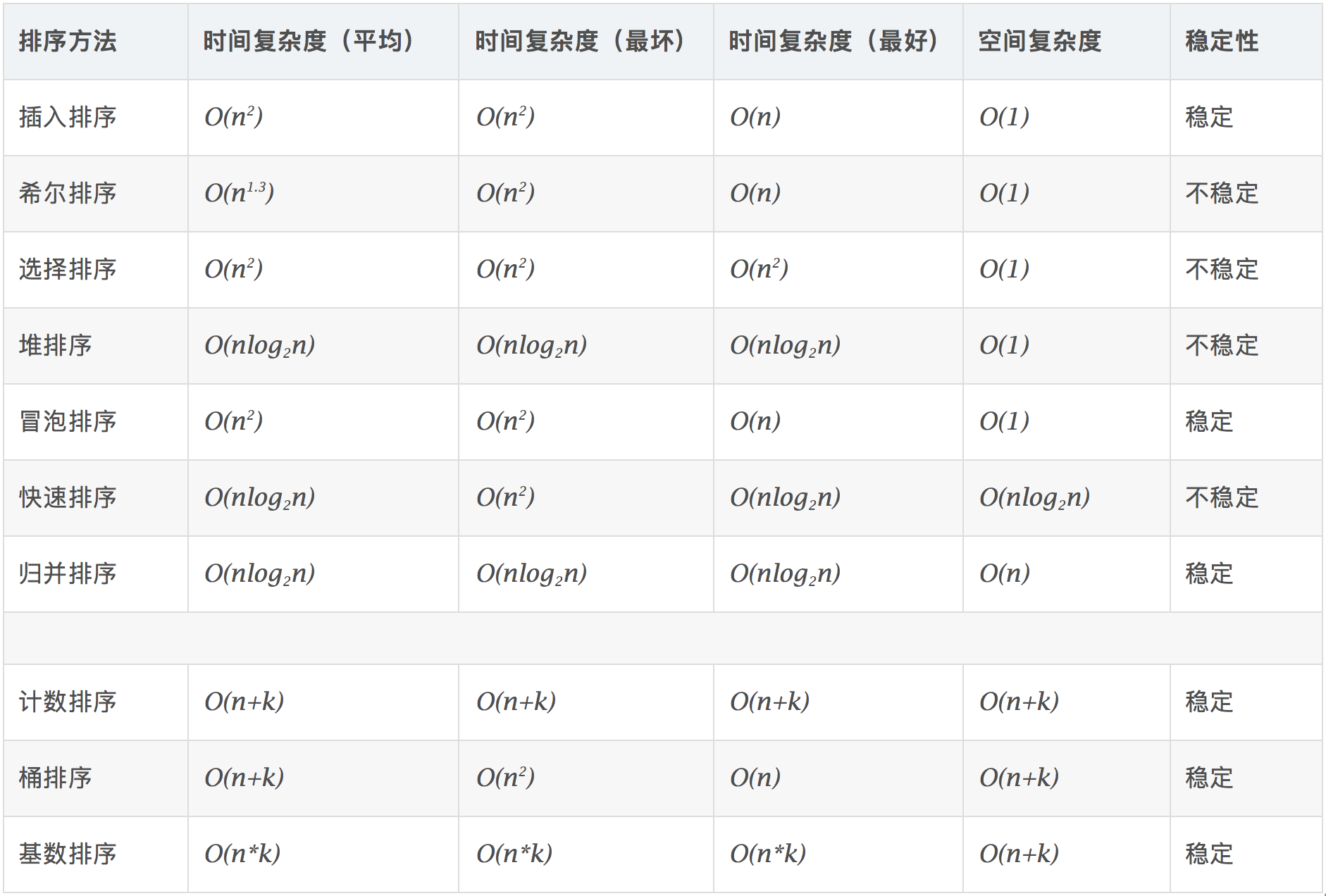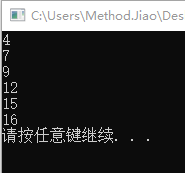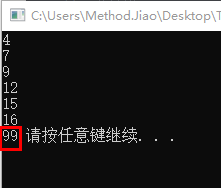[C + +] generic merge sort and generic binary search
Time complexity of sorting algorithm

The time complexity of common algorithms is as follows: Ο (1) < Ο (log2n) < Ο (n) < Ο (nlog2n) < Ο (n2) < Ο (n3) < <Ο(2n)<Ο(n!)
Support the generic merge sort of STL
1. Let's create a header file, algorithm? Sort. H. here's the content
#include <vector> template <class Iterator, class Strategy> inline void MergeSort(Iterator _First, Iterator _Last, Strategy _Strategy) { if (_First == _Last || _Last - _First == 1) return; typedef iterator_traits<Iterator>::difference_type difference_type; difference_type differenceType = (_Last - _First) / 2; MergeSort(_First, _First + differenceType, _Strategy); MergeSort(_First + differenceType, _Last, _Strategy); _merge(_First, _First + differenceType, _First + differenceType, _Last, _Strategy); } template <class Iterator, class Strategy> inline void _merge(Iterator _Part1First, Iterator _Part1Last, Iterator _Part2First, Iterator _Part2Last, Strategy _Strategy) { Iterator itPart1 = _Part1First; Iterator itPart2 = _Part2First; typedef iterator_traits<Iterator>::value_type value_type; vector<value_type> result; while (itPart1 != _Part1Last && itPart2 != _Part2Last){ if (_Strategy(*itPart1, *itPart2)){ result.push_back(*itPart1); itPart1++; } else{ result.push_back(*itPart2); itPart2++; } } if (itPart1 < _Part1Last) result.insert(result.end(), itPart1, _Part1Last); if (itPart2 < _Part2Last) result.insert(result.end(), itPart2, _Part2Last); itPart1 = _Part1First; itPart2 = _Part2First; vector<value_type>::iterator it = result.begin(); while (it != result.end()){ if (itPart1 != _Part1Last){ *itPart1 = *it; itPart1++; } else if (itPart2 != _Part2Last){ *itPart2 = *it; itPart2++; } it++; } }
2. The following is the calling procedure
#include "stdafx.h" #include <iostream> #include "algorithm_sort.h" #include <stdlib.h> using namespace std; struct MyStruct { int num; double age; }; template<class T> bool Max(T a, T b)//Sorting strategy { return a.num < b.num; } int _tmain(int argc, _TCHAR* argv[]) { MyStruct myStruct; myStruct.num = 12; myStruct.age = 1.; vector<MyStruct> data; data.push_back(myStruct); myStruct.num = 15; data.push_back(myStruct); myStruct.num = 9; data.push_back(myStruct); myStruct.num = 4; data.push_back(myStruct); myStruct.num = 7; data.push_back(myStruct); myStruct.num = 16; data.push_back(myStruct); //Merge sort MergeSort(data.begin(), data.end(), Max<MyStruct>); for (size_t i = 0; i < data.size(); i++) { cout << data[i].num << ' '; cout << endl; } }
3. Output results
General binary search supporting STL
1. Let's create a header file, algorithm search. H. The following is the content
template<class Iterator, class Strategy, class T> inline Iterator BinarySearch(Iterator _First, Iterator _Last, Strategy _Strategy, const T& key) { Iterator first = _First; Iterator end = _Last - 1; Iterator mid; while (first <= end) { mid = first + distance(first, end) / 2; if (_Strategy(*mid, key) > 0) end = mid - 1; else if (_Strategy(*mid, key) < 0) first = mid + 1; else return mid; } return _Last; }
2. The following is the calling procedure, which extends the binary search based on the original merge sorting. Because binary search needs an ordered set!
#include "stdafx.h" #include <iostream> #include "algorithm_sort.h" #include <stdlib.h> #include "algorithm_search.h" using namespace std; struct MyStruct { int num; double age; }; template<class T> bool Max(T a, T b)//Sorting strategy { return a.num < b.num; } template<class T1, class T2> int FindKey(T1 a, T2 b)//Search strategy { if (a.num < b) return -1; if (a.num > b) return 1; return 0; } int _tmain(int argc, _TCHAR* argv[]) { MyStruct myStruct; myStruct.num = 12; myStruct.age = 1.; vector<MyStruct> data; data.push_back(myStruct); myStruct.num = 15; data.push_back(myStruct); myStruct.num = 9; data.push_back(myStruct); myStruct.num = 4; myStruct.age = 99; data.push_back(myStruct); myStruct.num = 7; myStruct.age = 1.; data.push_back(myStruct); myStruct.num = 16; data.push_back(myStruct); //Merge sort MergeSort(data.begin(), data.end(), Max<MyStruct>); for (size_t i = 0; i < data.size(); i++) { cout << data[i].num << ' '; cout << endl; } //Two points search vector<MyStruct>::iterator it = BinarySearch(data.begin(), data.end(), FindKey<MyStruct, int>, 4); cout << it->age << ' '; system("PAUSE"); return 0; }
3. The output finds the value of age member in the object whose num is 4